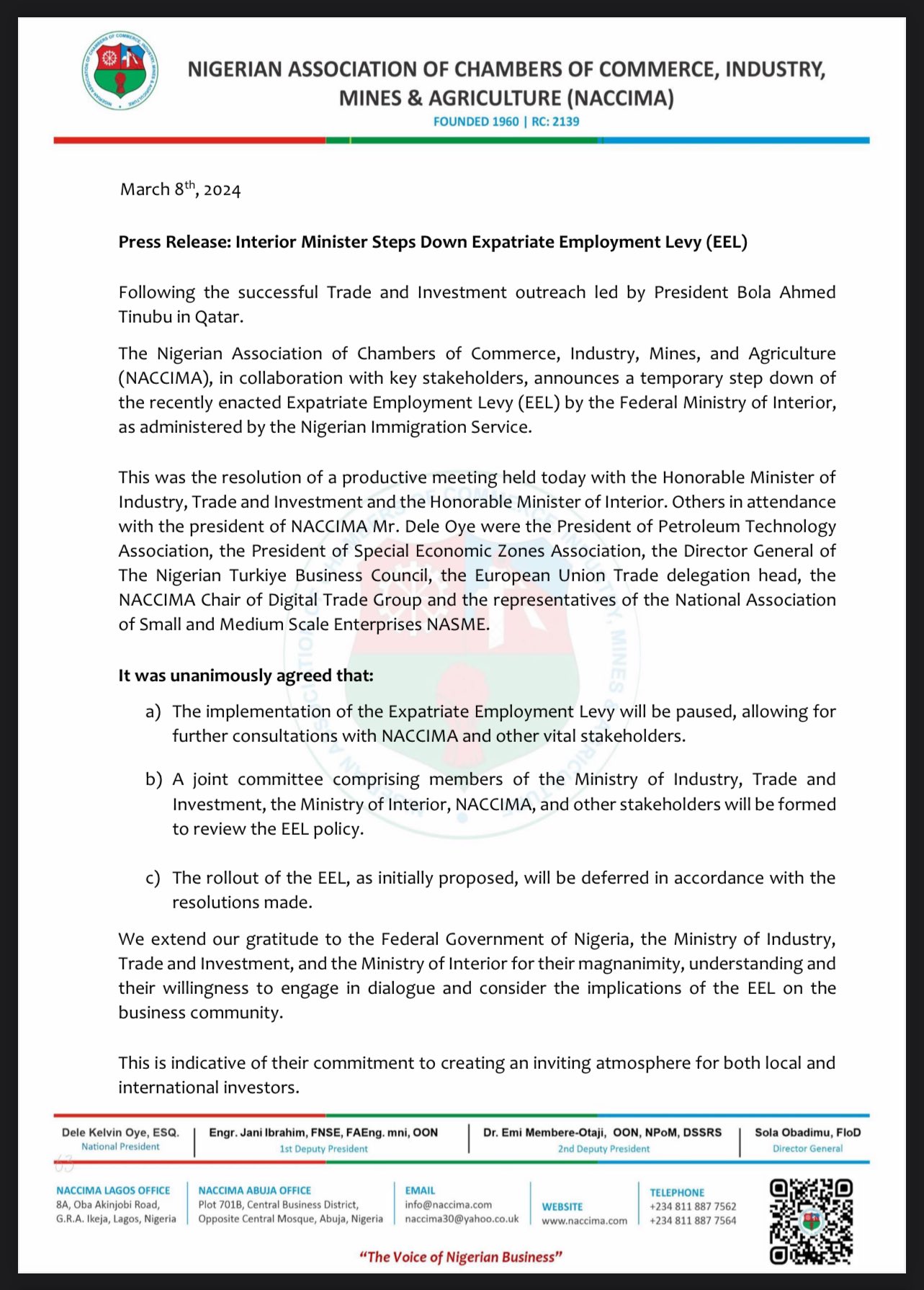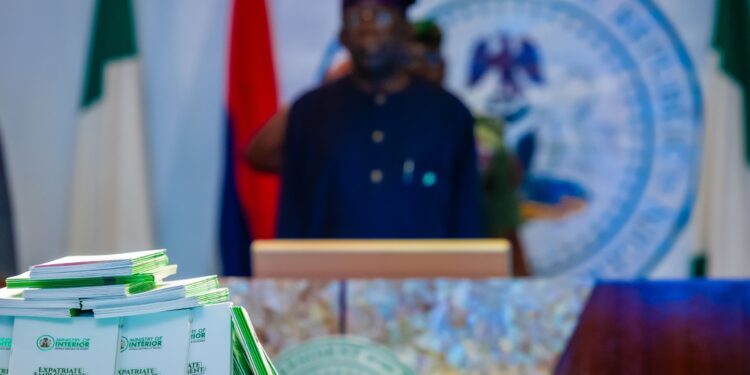The federal has announced the temporal suspension of the Expatriate Employment Levy (EEL) recently introduced by the Minister of Interior, Olubunmi Tunji-Ojo.
The Nigerian Association of Chambers of Commerce, Industry, Mines, and Agriculture (NACCIMA), along with key partners, announced the postponement in a press release.
The suspension came barely a few weeks after the policy was introduced.
The EEL policy was designed to impose taxes on foreign workers, which in turn encourages companies to hire qualified local workers for the same roles.

However, the policy has faced multiple criticisms, with some arguing that it could deter foreign investment and diminish economic efficiency.
- “The Nigerian Association of Chambers of Commerce, Industry, Mines, and Agriculture (NACCIMA) in collaboration with key stakeholders announced a temporary step down of the recently enacted Expatriate Employment Levy (EEL) by the Federal Ministry of Interior, as administered by the Nigeria Immigration Service.
- “This was the resolution of a productive meeting held today with the Honorable Minister of Industry, Trade and Investment and the Honorable Minister of Interior, joined by esteemed representatives including the President of Petroleum Technology Association, the President of Special Economic Zones Association, the Director General of The Nigerian Turkiye Business Council, the European Union, NASME, and the NACCIMA Chair of Digital Trade Group.
- “The implementation of the Expatriate Employment Levy will be paused, allowing for further consultations with NACCIMA and other vital stakeholders.
- “A joint committee comprising members of the Ministry of Industry, Trade and Investment, the Ministry of Interior, NACCIMA, and other stakeholders will be formed to review the EEL policy.
- “The rollout of the EEL, as initially proposed, will be deferred by the resolutions made,” the statement from NACCIMA reads in part.

Backstory
Earlier last week, President Bola Tinubu launched an expatriate employment levy, an initiative by the Federal Ministry of Interior, at the State House Council Chambers in Abuja
- This new initiative by the Federal Government was expected to help improve revenue generation, increase employment opportunities for Nigerians working in foreign companies operating in Nigeria, and close wage gaps between expatriates and Nigerian workers, among other benefits.
- Nonetheless, the policy has been widely criticized, with concerns that it may discourage foreign investment and reduce the efficiency of the economy.
- For instance, the Nigeria Employers’ Consultative Association (NECA), representing the Nigerian private sector’s employers, expressed concerns that the newly introduced expatriate employment levy could undermine President Bola Tinubu administration’s ongoing fiscal reforms.















